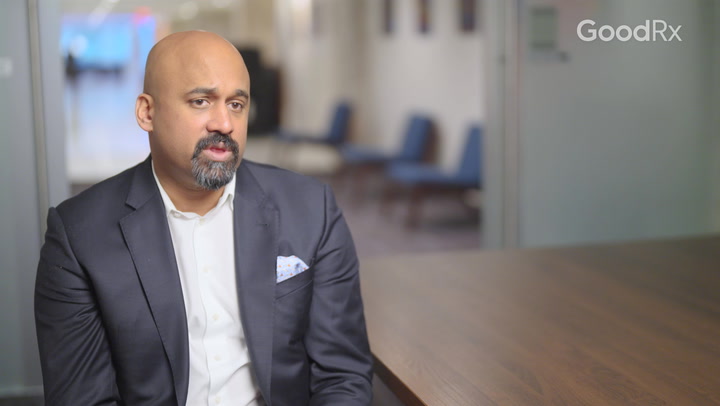
Support and Resources for People Who Are Formerly Incarcerated
Key takeaways:
Getting out of prison can feel both joyful and scary. You may revel in your freedom but face challenges like the inability to find a job and a place to live.
Communities all over the country have reentry programs. These programs can steer you toward affordable housing, a job or job training, and mental health or addiction support.
Many formerly incarcerated individuals have post-incarceration syndrome, a mental health issue characterized by anxiety, depression, and antisocial behaviors. Talking to a therapist or your primary care physician can help.

Over 650,000 Americans are released from prison every year. While release may bring about feelings of euphoria, reentry can be tough. Many returning citizens struggle to find a place to live and a job because of their criminal records. And without housing or employment, the chances of going back to prison increase.
Resources such as finding a reentry program, managing post-incarceration syndrome, and reconnecting with family members can ease the transition to life after prison.
What challenges do formerly incarcerated people face?
After serving 27 years, Chip Harris says he wasn’t prepared for the way the world had changed.
“The tempo of life was fast compared to what I was used to in prison,” he says. “Technology had changed. I’d never used a cell phone, GPS, or a debit card. Even driving was difficult. The sensory overload was near overwhelming.”
In addition to catching up with the rest of the world, Harris faced other challenges. Like many incarcerated individuals, he had no credit history. Without it, he knew it would be hard to secure housing. Fortunately, he was able to move in with a friend and find a great support system.
But that’s not the case for many people coming out of prison. They can face many challenges, such as:
Housing insecurity: Landlords often won’t rent to formerly incarcerated people or they charge higher fees, require a co-signer, or offer short-term leases without renewal. Returning citizens are almost 10 times more likely to experience homelessness than the rest of the American population.
Inability to find work: The unemployment rate for formerly incarcerated people is close to five times higher than the unemployment rate for Americans without a criminal record. Many employers are reluctant to hire ex-felons, and those who do offer low-paying jobs.
Custody challenges: The lack of employment opportunities and unstable housing make it harder for the formerly incarcerated to share custody, have overnight visits, or meet regularly with their children.
Broken family relationships and social networks: Incarceration can strain relationships between the loved one on the inside and their family on the outside. Couples are at higher risk of divorcing and children may feel abandoned by their incarcerated mom or dad.
Unsafe home environment: Many people coming out of prison can’t move back home or into their old neighborhoods. They may have family members involved in criminal activity or dealing with their own substance abuse issues. Their communities may have higher crime rates, lower employment rates, or higher gang activity.
Transportation barriers: Many returning citizens don’t have the means to buy a car or pay for public transportation. They may not be able to renew their driver’s licenses even if they can get their hands on a vehicle. Without reliable transportation, they’re unable to maintain a job, attend recovery classes, or access other community services.
Healthcare access needs: Formerly incarcerated individuals may have neglected physical and mental healthcare needs. But once they come out, they may have difficulty accessing the care they need to stay healthy.
Read more like this
Explore these related articles, suggested for readers like you.
What reentry programs can help formerly incarcerated people gain housing and employment?
Reentry programs are designed to transition formerly incarcerated individuals back into society. Some of these programs provide housing in their residential centers (also called halfway houses). They also work with employers who hire returning citizens.
Joy Block-Wright, who served a total of 5 years, was able to move into Exodus House in Tulsa, Oklahoma, with her two children. Exodus House provides one- and two-bedroom apartments for people coming out of prison and their children.
“Living at Exodus House for a year gave me an opportunity to save money and find a place to work that would hire an ex-felon,” says Block-Wright. “It helped me focus on things that would make me better and not be around negative influences.”
There are thousands of reentry programs across the country. Some are run by national organizations while others are supported through community resources:
The Lionheart Foundation (includes a long list of programs by state)
Veterans Affairs (for justice-involved vets)
How can formerly incarcerated people reinstate their government benefits?
The government suspends Medicaid, Social Security, and VA benefitsfor the length of time you’re in prison. After your release, you can get your benefits reinstated. You will need copies of your release forms.
Social Security
If you received Social Security benefits before incarceration, your benefits can be reinstated the month after your release.
If you received Supplemental Security Income (SSI) and were incarcerated for less than 12 months, your payments can be restarted the month of your release. If you were incarcerated for 12 consecutive months or longer, you will have to file a new application upon release.
Visit the Social Security Administration online or call 1-800-772-1213 to apply for benefits or request a new Social Security card. If you are deaf or hard of hearing, call 1-800-325-0778.
Medicare
If you had Medicare Part A coverage, your coverage should have continued while you were locked up.
If you had Medicare Part B, you would have needed to pay the monthly premiums to remain covered. If you weren’t able to, you can re-enroll during the general enrollment period, which is January through March. You may also be able to sign up during a special enrollment period.
Medicaid
If your Medicaid was terminated during your time behind bars, contact your local social services department to reapply for coverage. The Social Security Administration (SSA) can provide a referral form for the social services office.
Veterans Affairs
If you were incarcerated for more than 60 days, the VA probably reduced your disability benefits. You can get them reinstated upon your release from jail or prison. Use the website to find your regional VA benefits office or call 1-800-827-1000.
How can you manage post-incarceration syndrome?
Omar Howard, who served 15 years, says he dealt with trauma before he went into prison, and prison caused additional trauma.
“Everybody comes out with mental health issues because in prison you have to live an alternate lifestyle,” says Howard, who founded Freedom Is A Choice, an Atlanta-based mentorship program for youth. “A lot of the trauma hits us when we’re by ourselves because we become good at camouflaging pain.”
Post-incarceration syndrome (PICS) is a mental health issue that affects formerly incarcerated people. PICS can impact a returning citizen’s psychological, emotional, and social well-being. Related issues include:
Depression
Anxiety
Difficulty adjusting to life on the outside
Difficulty making new friends and maintaining relationships
Social isolation
Difficulty finding and keeping a job
Institutionalized behavior such as suppressing critical thinking and personal expression
Antisocial behaviors
Suicidal thoughts
If you think you have post-incarceration syndrome, these strategies may help:
Get mental health therapy. Look for community mental health services or low-cost treatment options, or join a mental health support group.
Connect with other returning citizens. Get mentorship and support from others who have successfully navigated life after prison.
Talk to a provider about medication. If you’ve been dealing with depression or anxiety for several weeks or months, you may want to ask your provider about medication. Antidepressants and anti-anxiety drugs may help stabilize your moods.
Get involved in a faith-based community: Block-Wright, Harris, and Howard all say getting involved in a church has had a positive impact on their lives. “A strong faith-based community can lift you up, root for you, help you overcome barriers,” says Block-Wright.
Find accountability partners. Choose trustworthy people who will check in on you, take you to recovery classes, and make sure you’re on track to meet personal goals.
Get involved in your community. Block-Wright volunteered with children of incarcerated parents to overcome depression. “It kept my focus off of me,” she says. “Helping others can help you with your mental state.” Block-Wright also founded Walter’s Way, a nonprofit furniture outlet in Tulsa. They provide furniture and household items to returning citizens.
Spend time outdoors. Block-Wright says being outside and seeing greenery rather than concrete also helped lift her depressed moods.
Become physically active. To manage her anxiety, Block-Wright started working out. Regular exercise can relieve symptoms of anxiety and depression.
How do you restore relationships after incarceration?
When Jerry Clemons was released from prison after 6 years, his relationships with his three daughters were strained.
“They were all traumatized,” recalls Clemons. “I had abandoned them when they needed me most during their preteen and teen years.”
He was also alienated from his father. They hadn’t spoken for 13 years after Clemons began drinking again and was arrested.
Today Clemons and his wife, Laure, run Extended Family, a support organization for families of incarcerated individuals. He’s been able to reconcile with his girls and his dad. They offer this advice for reconnecting with loved ones.
Forgive yourself and seek forgiveness
“We’re still healing but along the way the girls have forgiven me for abandoning them,” he says. “I’ve also moved past the guilt of causing harm to my girls and I’ve forgiven myself.” And he has made peace with his father. They have a good relationship today.
Practice healthy problem solving
Identify issues that arise and discuss possible solutions. You may become easily frustrated as you adjust to your new normal. Talk about your frustrations with your family and commit to working through them together.
Be prepared to modify your role in the family
Many returning citizens think their family dynamic will be the same as it was before prison. That’s often not the case.
“Don’t go home and think you’re going to be the boss of the house again and don’t assume you know your family members,” says Laure Clemons. “Practice treating them like any other adult you’re meeting on the outside for the first time.”
Attend family events
Show up for what’s important to your loved ones, like your grandson’s basketball game or your daughter’s graduation. “Be there for the big stuff and the small stuff,” says Laure Clemons. “It shows them they’re valuable to you.”
Model integrity
Be a person of your word. “Treat people right and do what you say you’re going to do,” says Jerry Clemons.
Be patient as you adjust to life on the outside
“Remember that some of the ways you acted and reacted in prison will not work on the outside,” says Laure Clemons. “It’s up to you to adapt to the world out here, because the world out here is not going to adapt to you.”
Invest in yourself
“It’s critical for anyone coming out of prison to develop their own interests and find outside support beyond their family members,” says Laure Clemons.
For instance, if you’re in recovery from substance abuse, find your own recovery support. If you’re interested in starting your own business, talk to people in your community who have started their own businesses.
"Spend time on activities that will help you grow as a person, so you can develop into a healthy family member,” says Laure Clemons. “While you may want to spend all your time helping your family now that you are out of prison, understand that everyone needs time and space to re-energize. Your family will understand that you are working on your own growth and development."
The bottom line
Getting out of prison can be overwhelming. You may experience an onslaught of emotions like excitement, confusion, and anxiety. You may face challenges finding a job and a place to live or you may have post-incarceration syndrome, a mental health issue with symptoms like anxiety, depression, and PTSD.
Reentry programs in communities across the country may be able to secure housing for you and introduce you to felon-friendly employers. They may also know where you can turn to for mental health therapy or substance recovery support.
As you work to restore your relationships with family members and friends, remember to be patient with yourself and others. Incarceration is hard on everyone, but in time, you may be able to forgive yourself, rebuild trust, and reconnect with your loved ones.
Why trust our experts?



References
Centers for Medicare & Medicaid Services. (2016). Enrolling in Medicare Part A & Part B.
Couloute, L. (2018). Nowhere to go: Homelessness among formerly incarcerated people. Prison Policy Initiative.
Couloute, L., et al. (2018). Out of prison & out of work: Unemployment among formerly incarcerated people. Prison Policy Initiative.
HealthCare.gov. (n.d.). Health coverage for incarcerated people.
Lee, H., et al. (2015). Consequences of family member incarceration: Impacts on civic participation and perceptions of the legitimacy and fairness of government. The Annals of the American Academy of Political and Social Science.
National Incarceration Association. (n.d.). Post incarceration syndrome (PICS).
Quandt, K. R., et al. (2021). Research roundup: Incarceration can cause lasting damage to mental health. Prison Policy Initiative.
SAMHSA’s GAINS Center. (2021). Transportation after incarceration: Where the rubber meets the road for sustainable reentry. Policy Research Associates.
Social Security Administration. (n.d.). Social Security and Supplemental Security Income benefits.
Social Security Administration. (n.d.). What prisoners need to know.
U.S. Department of Justice. (n.d.). Prisoners and prisoner re-entry.
Visher, C., et al. (2004). Returning home: Understanding the challenges of prisoner reentry Maryland pilot study: Findings from Baltimore. Urban Institute.
Western, B., et al. (2019). Formerly incarcerated parents and their children. Demography.





























